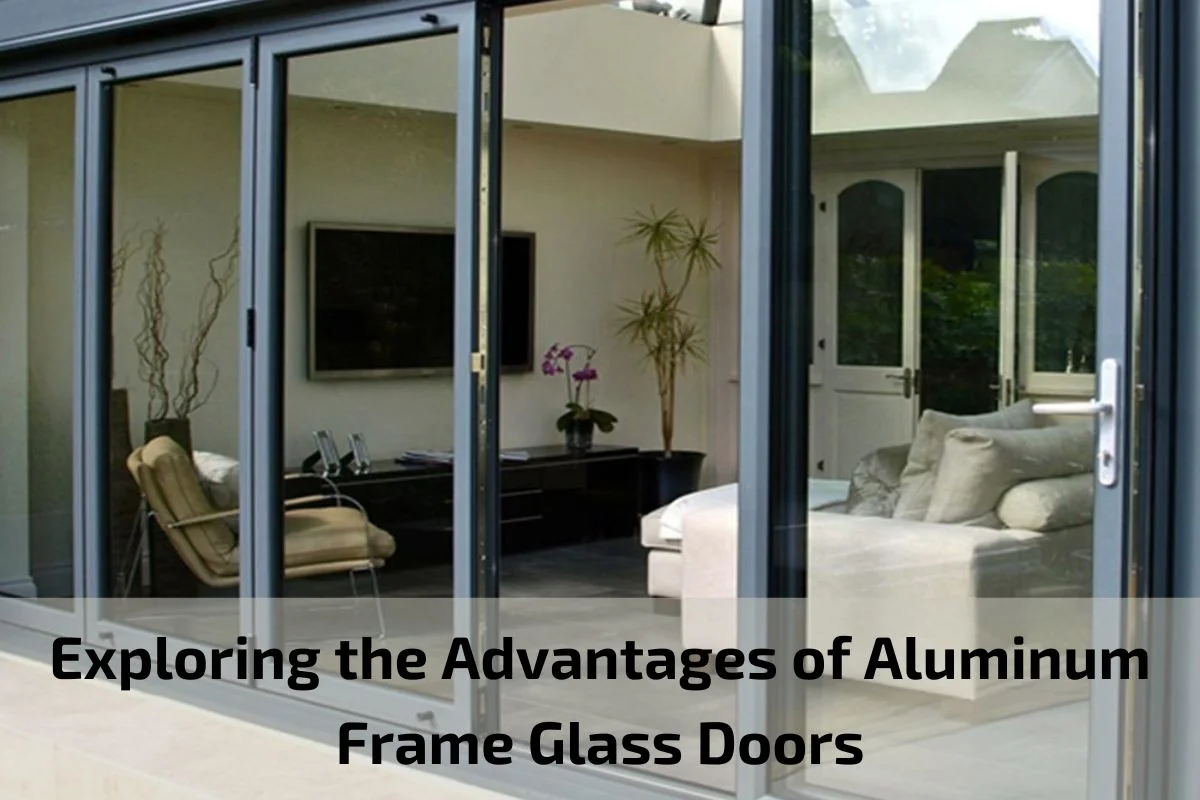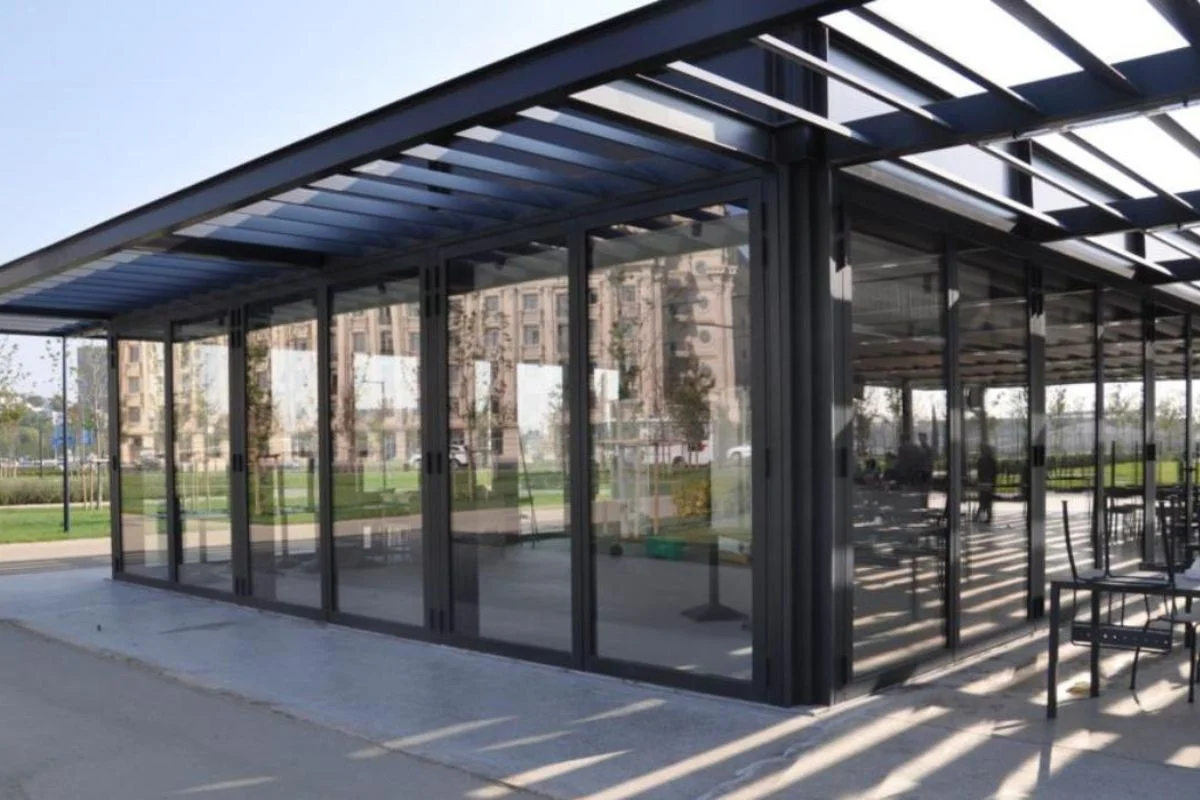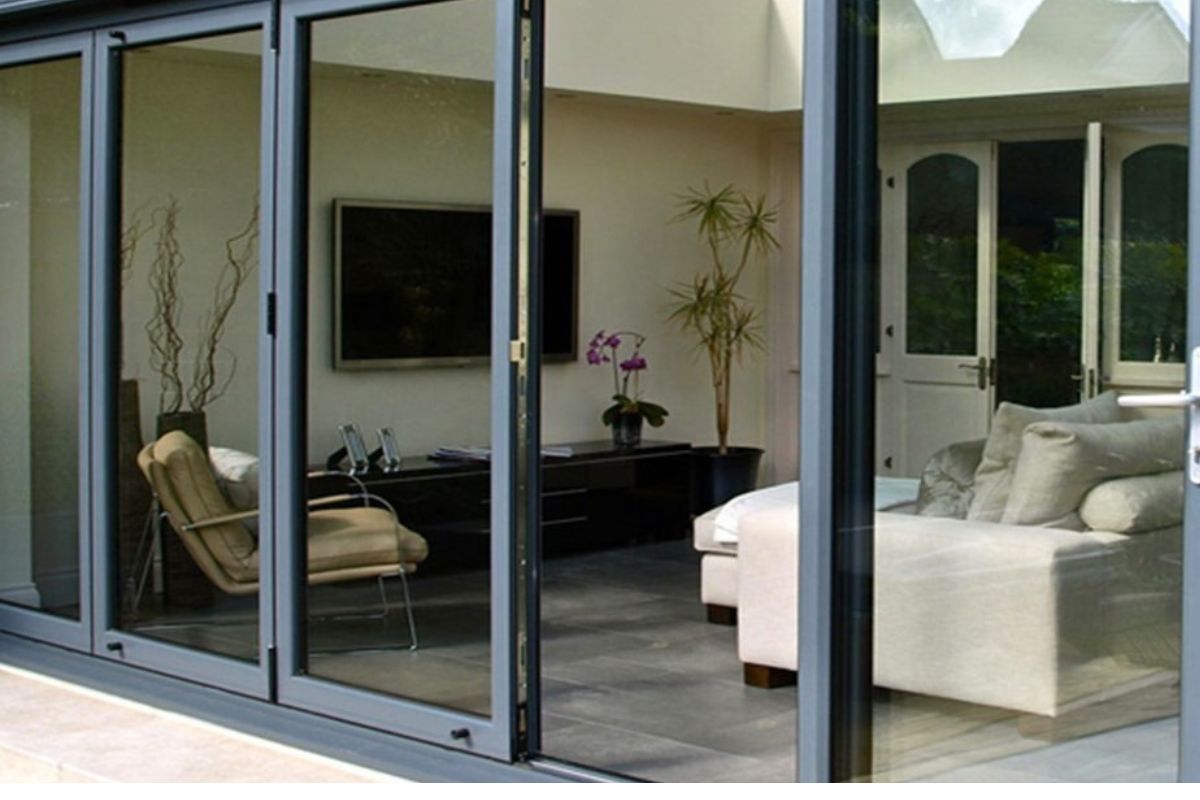
Aluminum frame glass doors represent a modern and sophisticated architectural element that has gained widespread popularity in both residential and commercial settings. These doors seamlessly blend functionality with aesthetics, offering a plethora of advantages that make them an attractive choice for contemporary spaces. From enhancing natural light to providing durability and versatility, aluminum frame glass doors have become synonymous with sleek, minimalist design and practicality. In this article, we will delve into the myriad benefits of aluminum frame glass doors, exploring how they elevate the ambiance, functionality, and overall appeal of any environment. Whether you’re designing a new home, renovating a commercial space, or simply seeking to infuse your surroundings with a touch of elegance, aluminum frame glass doors offer a compelling solution that embodies both style and substance.
Brief overview of aluminum frame glass doors:
Aluminum frame glass doors represent a modern architectural solution that seamlessly merges functionality with elegance. These doors feature sturdy aluminum frames that encase large glass panels, creating a sleek and minimalist aesthetic while maximizing natural light and views. They have gained popularity in both residential and commercial settings for their versatility, durability, and contemporary appeal. Aluminum frame glass doors are prized for their ability to create seamless transitions between indoor and outdoor spaces, enhance the ambiance of any environment, and elevate the overall design aesthetic.
Importance of Aluminum Frame Glass Doors in Modern Architecture:
Aluminum frame glass doors have emerged as indispensable elements in modern architecture, playing a pivotal role in shaping the aesthetic and functional aspects of contemporary buildings. Their significance stems from several key factors:
Seamless Integration of Indoor and Outdoor Spaces: In modern architecture, there is a growing emphasis on blurring the boundaries between indoor and outdoor environments. Aluminum frame glass doors facilitate this integration by providing expansive openings that invite natural light and panoramic views into interior spaces. This seamless connection with the outdoors creates a sense of openness and harmony, enhancing the overall experience of occupants.
Maximization of Natural Light: Natural light is a fundamental element in architectural design, contributing to the well-being and productivity of occupants. Aluminum frame glass doors maximize the entry of natural light into interior spaces, reducing the need for artificial lighting during daylight hours. This not only creates a bright and inviting atmosphere but also helps reduce energy consumption and promote sustainability.
Enhancement of Visual Aesthetics: Aluminum frame glass doors are prized for their sleek and minimalist design, which adds a touch of sophistication to any architectural composition. The clean lines and transparency of glass complement contemporary design aesthetics, creating a sense of modernity and elegance. Whether used in residential homes, commercial buildings, or public spaces, aluminum frame glass doors contribute to the visual appeal and overall ambiance of the environment.
- Flexibility in Design and Functionality: Aluminum frame glass doors offer a high degree of flexibility in terms of design and functionality. They can be customized to fit various architectural styles and spatial requirements, from large-scale commercial projects to small-scale residential renovations. Additionally, aluminum frame glass doors can be configured in different ways to accommodate specific needs, such as folding, sliding, or pivoting mechanisms, providing architects and designers with endless possibilities for creative expression.
- Sustainable Building Practices: With an increasing focus on sustainability in the construction industry, aluminum frame glass doors are preferred for their eco-friendly properties. Aluminum is a highly recyclable material that can be repurposed with minimal environmental impact, making it an attractive choice for sustainable building practices. Additionally, the use of glass allows for passive solar heating and daylighting strategies, further reducing the carbon footprint of buildings.
Definition and components of Aluminum Frame Glass Doors:
Aluminum frame glass doors are architectural elements characterized by their construction using aluminum frames and large glass panels. These doors are designed to provide seamless transitions between indoor and outdoor spaces while maximizing natural light and views. The key components of aluminum frame glass doors include:
Aluminum Frames: The frames of aluminum frame glass doors are typically made from extruded aluminum profiles. Aluminum is favored for its durability, lightweight nature, and resistance to corrosion, making it well-suited for both interior and exterior applications. The frames serve as the structural support for the glass panels and provide stability and rigidity to the door system.
Glass Panels: The primary feature of aluminum frame glass doors is the large glass panels that form the door’s surface. These panels are usually made from tempered or laminated glass, known for its strength, safety, and transparency. The glass panels allow for the passage of natural light and provide unobstructed views of the surrounding environment, creating a sense of openness and connectivity.
Hinges and Hardware: Aluminum frame glass doors incorporate hinges and hardware components that facilitate their operation. Hinges allow the doors to pivot or swing open and closed, while handles, locks, and other hardware provide functionality and security. These components are often made from stainless steel or other corrosion-resistant materials to withstand frequent use and exposure to the elements.
Seals and Weather stripping: To ensure proper insulation and weatherproofing, aluminum frame glass doors are equipped with seals and weather-stripping along the edges of the frames. These seals prevent air infiltration, water penetration, and drafts, helping to maintain indoor comfort and energy efficiency. Common types of seals include rubber gaskets, silicone weather-strips, and vinyl sweeps.
Track Systems (Optional): Depending on the design and configuration of the doors, aluminum frame glass doors may feature track systems that guide the movement of the panels. Track systems can be top-hung or bottom-rolling, allowing for smooth and effortless operation of sliding or folding doors. These systems are often concealed within the door frame for a clean and streamlined appearance.
Advantages and Disadvantages of Aluminum Frame Glass Doors:
Advantages:
Maximization of Natural Light: Aluminum frame glass doors allow abundant natural light to enter interior spaces, creating a bright and airy atmosphere. This helps reduce the reliance on artificial lighting during daylight hours, leading to energy savings and a more sustainable built environment.
Seamless Integration of Indoor and Outdoor Spaces: With their large glass panels and minimalistic frames, aluminum frame glass doors facilitate seamless transitions between indoor and outdoor spaces. This creates a sense of continuity and connectivity with the surrounding environment, enhancing the overall experience of occupants.
Enhanced Aesthetic Appeal: Aluminum frame glass doors add a touch of sophistication and modernity to any architectural design. The sleek and minimalist appearance of aluminum frames complements various design styles, while the transparency of glass panels adds elegance and visual interest.
Versatility in Design: Aluminum frame glass doors offer versatility in design, allowing for customization to fit specific architectural requirements and spatial constraints. They can be configured as sliding, folding, or pivoting doors, providing flexibility in functionality and space utilization.
Durability and Low Maintenance: Aluminum is known for its durability, corrosion resistance, and low maintenance requirements. Aluminum frame glass doors are built to withstand harsh weather conditions and require minimal upkeep to retain their appearance and performance over time.
Disadvantages:
Insulation and Energy Efficiency: Aluminum frame glass doors are not as efficient in terms of insulation compared to doors made from other materials such as wood or vinyl. Aluminum has high thermal conductivity, which can result in heat loss or gain, leading to increased energy consumption for heating and cooling.
Condensation and Moisture Issues: In cold climates, aluminum frame glass doors may be prone to condensation and moisture buildup on the glass surfaces and frames. This can lead to issues such as mold growth, water damage, and reduced indoor air quality if not properly addressed through adequate ventilation and insulation measures.
Cost Considerations: Aluminum frame glass doors tend to be more expensive upfront compared to doors made from other materials. The cost of aluminum, glass, and installation can add up, especially for large or custom-designed door systems, making them less accessible for budget-conscious projects.
Security Concerns: While aluminum frame glass doors can be equipped with robust locking mechanisms and tempered glass for security purposes, some homeowners may have concerns about the vulnerability of glass to break-ins or intrusions. Reinforced glass and additional security features may be necessary to address these concerns, adding to the overall cost.
Installation and Maintenance Tips for Aluminum Frame Glass Doors:
Installation Tips:
Professional Installation: It’s advisable to hire experienced professionals for the installation of aluminum frame glass doors. Proper installation is crucial for ensuring structural integrity, weatherproofing, and optimal performance of the doors.
Accurate Measurements: Take precise measurements of the door opening to ensure a perfect fit for the aluminum frame glass doors. Account for any irregularities in the wall or floor, and make adjustments as necessary to accommodate the door system.
Secure Mounting: Use sturdy mounting hardware and anchors to secure the aluminum frames to the surrounding structure. Follow manufacturer guidelines and building codes to ensure proper anchoring and structural support.
Weatherproofing: Apply weatherproof seals and gaskets around the door frame to prevent air and water infiltration. Seal any gaps or joints with caulking or weather-stripping to enhance insulation and protect against drafts and moisture intrusion.
Test Operation: After installation, test the operation of the aluminum frame glass doors to ensure they open and close smoothly without binding or sticking. Adjust hinges, tracks, and hardware as needed to achieve optimal performance.
Maintenance Tips:
Regular Cleaning: Clean the glass panels and aluminum frames regularly using a mild detergent or glass cleaner and a soft cloth or sponge. Remove any dirt, dust, or debris to maintain clarity and transparency.
Inspect Seals and Weatherstripping: Periodically inspect the weather seals and weatherstripping around the door frame for signs of wear, damage, or deterioration. Replace any worn or damaged seals to ensure proper weatherproofing and insulation.
Lubricate Moving Parts: Lubricate hinges, tracks, rollers, and other moving parts of the aluminum frame glass doors with a silicone-based lubricant to ensure smooth operation. Remove any dirt or debris that may accumulate in the tracks to prevent binding or sticking.
Check Hardware: Regularly check the condition of hinges, handles, locks, and other hardware components for tightness, alignment, and functionality. Tighten loose screws or bolts and replace any damaged or worn hardware as needed.
Protective Coatings: Consider applying protective coatings or finishes to the aluminum frames to enhance durability and resistance to corrosion. Follow manufacturer recommendations for proper application and maintenance of protective coatings.
Addressing Condensation: In cold climates, monitor the glass panels and frames for condensation and moisture buildup. Ensure adequate ventilation and insulation to minimize condensation and prevent water damage or mold growth.
Conclusion:
In conclusion, aluminum frame glass doors stand as versatile and contemporary architectural elements that offer a myriad of benefits while requiring careful consideration for installation and maintenance. Their seamless integration of indoor and outdoor spaces, maximization of natural light, and modern aesthetic appeal make them highly sought after in both residential and commercial settings




